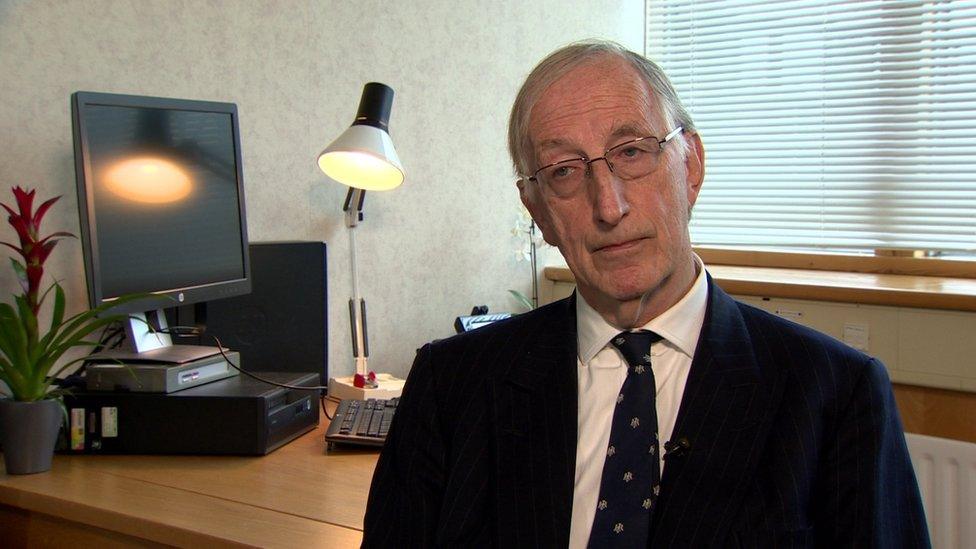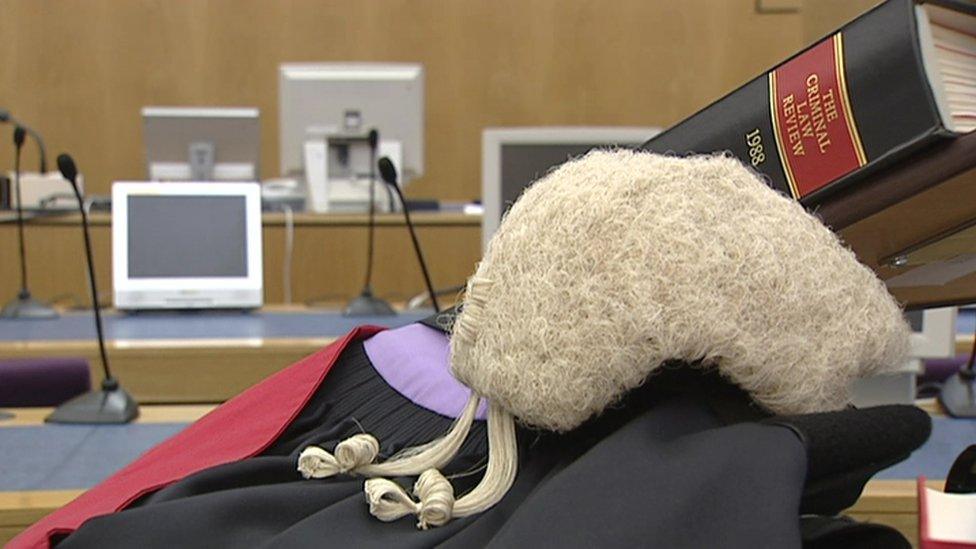Retired judge criticises 'slow' pace of sex crime reform
- Published

Sir John Gillen's report endorsed 253 changes, with 16 described as "key recommendations"
The Department of Justice (DoJ) has been too slow to implement proposed reform of how NI handles sex offence cases, a retired judge has said.
Sir John Gillen said the department had "taken too long" to implement recommendations made in a report into how sexual offences are dealt with in Northern Ireland.
Sir John said the "justice system has much to change".
He added that educational and societal reform was also needed.
The retired judge was tasked to review procedures in 2018, following the case of ex-Ulster rugby players Paddy Jackson and Stuart Olding, who were acquitted of rape charges at a high-profile trial.
He made 253 recommendations including measures to combat rape myths and stereotypes and bring new legislation to manage dangers created by social media.
Speaking on BBC Radio Ulster's Evening Extra programme on Monday evening, Sir John said "it has taken too long in getting these things through".
His comments were made following the murder of two women on Friday.
"I hope we don't have to wait until women and girls are murdered until these things change," he said.
'Education'
Sir John praised Justice Minister Naomi Long for taking the issues seriously, but said change would need to be backed on a wider basis by her executive colleagues.
"You need a cross-executive approach to all of this, she can't do this on our own and I am satisfied that she is committed to the reforms that I have, but I have to say the outgoing is far too slow."
The former judge said one of his key recommendations was for sex and relationship education for schoolchildren from primary one.
"Relationship sex education programmes are mandatory in all schools in England and Wales - why aren't we doing that?" he asked.
Earlier in March, an expert advisory panel on a gender equality strategy, appointed by Stormont, said relationship and sex education (RSE) in schools in Northern Ireland is "inconsistent and insufficient".
It said age-appropriate RSE should be compulsory in schools,
Sir John said there should be close partnership between schools and parents on a curriculum dealing with issues such as respect, consent and the need for boundaries to be laid down.
The DoJ said it was "fully committed" to improving the experience of the justice system for victims and agreed with Sir John's assertion that a wide-ranging approach was needed.
"To this end, the Justice Minister met recently with the Education Minister to discuss the need for consistent Relationship and Sexuality Education across all schools, to teach children and young people about healthy relationships," a spokesperson said.
"She also met with Health Minister this afternoon to discuss Sir John's recommendations in relation to supporting child victims.
"Whilst more work needs to be done, progress is being made, with almost 75% of Sir John's recommendations either implemented or in train; and new measures are in place that are already delivering tangible changes for victims of serious sexual offences."
Related topics
- Published8 May 2019

- Published9 July 2020
